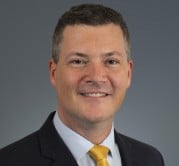Uh oh – now what?

“Signs, signs, everywhere a sign…do this, don’t do that, can’t you read the sign?” – Five Man Electrical Band
It seems that everything old is new again. In Connecticut, Governor Lamont’s adoption of the recent CDC guidance regarding mask requirements has caused many of us (including Connecticut’s Chief Operating Officer Josh Geballe) to recall the days when shops and restaurants would post signs saying, “no shirt, no shoes, no service.” “Everyone has the choice not to answer [the vaccination question] or go shop somewhere else,” said Geballe.
This is nothing new. For many years now, American individuals have peacefully coexisted with American businesses exercising their (admittedly and refreshingly limited) right to prohibit or require certain activities on their property (No Browsing, No Loitering, No Parking, Employees Only, etc.).
This latest governmental public health guidance gives precious little detail or instruction to business owners about how to go about reopening their public space, or which policies they should adopt for their own employees. The result, driven by individual choice and more than a little corporate handwringing, is a patchwork of varying policies with little to no uniformity.
Consider that some major well-known businesses have essentially done away with mask requirements, while others continue to require everyone to mask up. Still others have required customers to show proof of vaccination, despite the open question of whether such a policy is legal or could violate people’s rights to medical privacy. And at least one national brand eliminated in-person browsing and only offers curbside pickup.
For all this uncertainty, and as the nation emerges from its COVID hibernation, businesses seem to be leaning towards the honor system — asking non-vaccinated people to wear a mask but not enforcing the policy. Such a situation can be maddeningly confusing for consumers and businesses alike.
It is just the latest plot twist in the seemingly endless horror novel called Coronavirus—a twist that unfortunately delays our emergence into a stable and consistent new normal.
So what is the best way to approach this long-awaited period of reopening in which we now find ourselves?
As a general matter, businesses that know their customers well can adapt to change and resume normal operations more easily than those that do not. The question for credit unions then becomes, “How well do you know your members?”
Are they mostly healthcare workers or teachers and, therefore, more likely to be vaccinated?
Does their average age suggest a greater or lesser concentration of vaccination?
What anecdotal evidence about mask wearing or lobby access have you collected from your drive through traffic or in your member service centers?
Are the vaccination or positivity rates consistent across the geographic distribution of your membership?
Where you do business has a lot to do with how you will reopen as well. For example, Connecticut is at the leading edge of vaccinations in the nation now, and as a result is seeing the lowest numbers of COVID cases and COVID-based hospitalizations since the pandemic first took hold. But how is your state doing with its public health response? Do your members have confidence in that response?
These are all simple questions that you can ask your members to help you segment, analyze and, more importantly, understand your membership. Knowing and understanding your membership will ultimately help you decide which policies to enact and, most importantly, how to apply them consistently and fairly.
As we enter this new phase of pandemic recovery, however you decide to reopen, now is a perfect time to get to know your members just a little better by asking, perhaps, how they feel in addition to what they want. Much like those signs from our past which are still with us in varying forms today, member connection is something that is never outdated.

